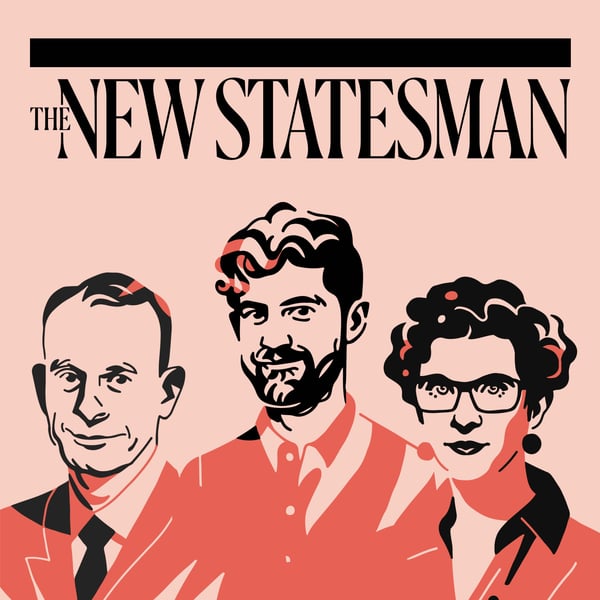Will Red Wall voters ditch Boris Johnson at the Wakefield by-election?
The New Statesman | UK politics and culture
The New Statesman
4.4 • 1.4K Ratings
🗓️ 16 June 2022
⏱️ 31 minutes
🧾️ Download transcript
Summary
The by-election in Wakefield on June 23 will be a crucial test of whether Labour can win the Red Wall back from the Conservatives.
The election was triggered by the resignation of the Conservative MP Imran Ahmad Khan after he was found guilty in April of sexually assaulting a teenaged boy. Khan was elected in the 2019 general election as the first non-Labour MP in the seat, two thirds of which voted Leave in the EU referendum, since 1932. Victory for Labour would send a powerful signal that the party can regain the Red Wall and form the next government.
Anoosh Chakelian, reporting from Wakefield, is joined by Rachel Cunliffe to discuss the mood on the ground, new polling that suggests Labour has taken a massive lead and what this might mean for the party.
Then she speaks to Anand Menon, professor of European politics and foreign affairs at King’s College London and director of the UK in a Changing Europe research initiative. He discusses the issues affecting his home city, why it shifted from red to blue in 2019 and what challenges face the candidates.
If you have a question for You Ask Us, email [email protected].
Podcast listeners can subscribe to the New Statesman for just £1 a week for 12 weeks using our special offer. Just visit newstatesman.com/podcastoffer.
Hosted on Acast. See acast.com/privacy for more information.
Transcript
Click on a timestamp to play from that location
| 0:00.0 | Hi, I'm Anouche and on today's special episode of the new statesman podcast, I report from |
| 0:07.1 | the Wakefield by-election campaign trail. I speak to Anan Menon, the politics professor |
| 0:12.2 | and director of UK and a changing Europe who grew up in the constituency and gives me |
| 0:16.6 | the lay of the land, and then I chat with Rachel Cunliffe, my colleague, about what the |
| 0:20.4 | by-election means. So, I'm currently sitting in a gloriously sunny day. Honestly, I'm |
| 0:29.1 | not skyving off work, but it just happens to be a scorcher the week that I've been reporting |
| 0:34.5 | from this West Yorkshire city on the by-election that's coming up next week, and we're in the |
| 0:39.8 | gardens of the Hepworth gallery, which is a very smart gallery on the outskirts of the city. |
| 0:46.3 | I caught up with Anan Menon, the politics professor and director of UK and a changing Europe |
| 0:52.2 | earlier this week. He actually grew up in Wakefield, so he set the scene about the area |
| 0:56.7 | for me. |
| 0:57.7 | Thanks so much for joining us. No worries, Anouche could do with you. I'd rather do Wakefield |
| 1:00.9 | than the protocol any day of the week. Oh good, I'm glad to hear it because this is |
| 1:05.2 | all about Wakefield. It must be weird, first of all. I did want to ask you about this |
| 1:09.2 | sort of hearing London-based journalists suddenly trying to characterise your city. How has |
| 1:14.5 | that been, and have you heard any clangers? |
| 1:16.5 | Well, I heard it clangered from, I hope you don't mind me mentioning this, from a colleague |
| 1:19.9 | of mine, Rob Ford, actually, who in one of his fantastic Twitter threads describe Wakefield |
| 1:25.1 | as being in South Yorkshire, which was great fun, but actually it's really nice. It's really |
| 1:29.8 | nice. I mean, it's nice and it's interesting. I mean, it's nice to hear Wakefield be mention |
| 1:34.2 | because one of the defining features of Wakefield was that no one visited it and no one |
| 1:39.1 | talked about it, certainly pre-Hetworth. And secondly, it says something interesting about |
... |
Transcript will be available on the free plan in -1020 days. Upgrade to see the full transcript now.
Disclaimer: The podcast and artwork embedded on this page are from The New Statesman, and are the property of its owner and not affiliated with or endorsed by Tapesearch.
Generated transcripts are the property of The New Statesman and are distributed freely under the Fair Use doctrine. Transcripts generated by Tapesearch are not guaranteed to be accurate.
Copyright © Tapesearch 2025.

